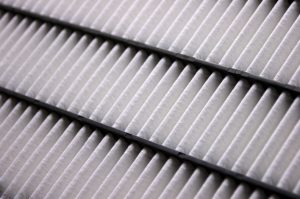 If you’re still using your furnace to keep warm this season, then there is one thing that you should be keeping an eye on: your furnace air filter. It’s a small part, and one that many homeowners don’t even know they have. If you neglect it, though, you’re just begging to have your system run into problems further down the road. Have a look below at what your furnace air filter does, and why it’s so important to make sure that it’s changed on a regular basis.
If you’re still using your furnace to keep warm this season, then there is one thing that you should be keeping an eye on: your furnace air filter. It’s a small part, and one that many homeowners don’t even know they have. If you neglect it, though, you’re just begging to have your system run into problems further down the road. Have a look below at what your furnace air filter does, and why it’s so important to make sure that it’s changed on a regular basis.
-
Air Conditioning
-
Heating
- Heating Installation and Replacement
- Heating Repair and Maintenance
- Furnace Installation and Replacement
- Furnace Repair and Maintenance
- Heat Pump Installation and Replacement
- Heat Pump Repair and Maintenance
- Hybrid Heating Systems
- Ductless Mini Split Systems
- Thermostats
- Zone Systems
- Heat Pump Water Heaters
- Pool Heaters
-
Indoor Air Quality
-
Commercial HVAC
- New Construction
-
Maintenance Program
-
About Us
-
Contact Us

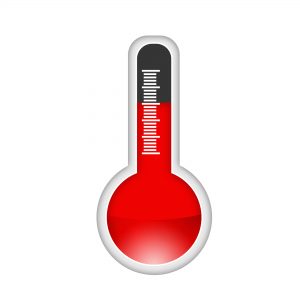 Heating may not be as important as air conditioning in Florida, but we still have at least a few days a year where it’s a good thing to have. If you’re in the market for a new heating system for your home, there are a number of options available to you. Have a look at a few of them below, and the different advantages that each could offer you if you were to install it. Keep in mind, though, that you should always consult with a professional before making a final decision about installing a new system.
Heating may not be as important as air conditioning in Florida, but we still have at least a few days a year where it’s a good thing to have. If you’re in the market for a new heating system for your home, there are a number of options available to you. Have a look at a few of them below, and the different advantages that each could offer you if you were to install it. Keep in mind, though, that you should always consult with a professional before making a final decision about installing a new system. 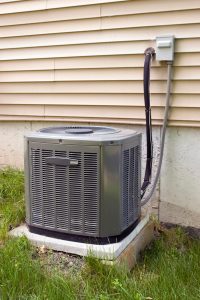 Heat pumps are placed under a lot of stress throughout the year, but especially during the summer and winter seasons. If you’re using a heat pump for climate control this winter, you need to keep an eye out for problems that might develop. Earlier problem detection means faster repairs, which means more damage prevented. Have a look at some of the warning signs that your heat pump is malfunctioning this winter.
Heat pumps are placed under a lot of stress throughout the year, but especially during the summer and winter seasons. If you’re using a heat pump for climate control this winter, you need to keep an eye out for problems that might develop. Earlier problem detection means faster repairs, which means more damage prevented. Have a look at some of the warning signs that your heat pump is malfunctioning this winter. 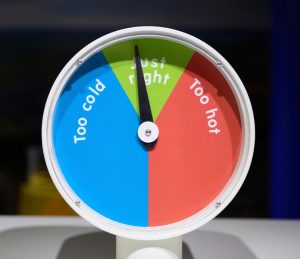 Your heat pump probably spends a lot more time in cooling mode than heating mode around here. Still, you probably don’t want to go totally without the ability to heat your home. There are going to be at least a few days where you’re going to want your heat pump to, you know, heat. If your heat pump seems to be stuck in cooling mode, it’s probably because of a problem with your reversing valve. Have a look at how the reversing valve operates, and how a problem with it can lock your system into cooling mode.
Your heat pump probably spends a lot more time in cooling mode than heating mode around here. Still, you probably don’t want to go totally without the ability to heat your home. There are going to be at least a few days where you’re going to want your heat pump to, you know, heat. If your heat pump seems to be stuck in cooling mode, it’s probably because of a problem with your reversing valve. Have a look at how the reversing valve operates, and how a problem with it can lock your system into cooling mode. 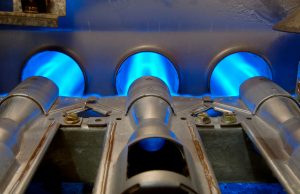 Even in Florida, the odds of your furnace developing problems is significantly higher during the winter than at other times. We’re going to go out on a limb and assume that you don’t want your furnace to lose efficiency, or break down, or explode (that last one is unlikely) in the middle of a cold winter day. In order to prevent that, there are a few steps you can take to keep your system functioning.
Even in Florida, the odds of your furnace developing problems is significantly higher during the winter than at other times. We’re going to go out on a limb and assume that you don’t want your furnace to lose efficiency, or break down, or explode (that last one is unlikely) in the middle of a cold winter day. In order to prevent that, there are a few steps you can take to keep your system functioning. 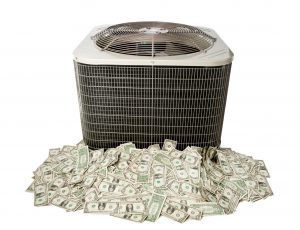 While most of the rest of the country prepares for the heating season, we continue to rely on our air conditioners to keep us cool during the daylight hours. While comfort is important, of course, so is cost-effectiveness. Nobody likes to choose between getting a massive bill at the end of every month or going without climate control. Fortunately, there are a couple of different things that you can do to help improve your air conditioner efficiency. Read on to find out how!
While most of the rest of the country prepares for the heating season, we continue to rely on our air conditioners to keep us cool during the daylight hours. While comfort is important, of course, so is cost-effectiveness. Nobody likes to choose between getting a massive bill at the end of every month or going without climate control. Fortunately, there are a couple of different things that you can do to help improve your air conditioner efficiency. Read on to find out how! 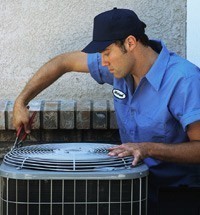 The weather is only going to get hotter over the next few weeks, which means you’re going to be relying on your heat pump that much more to keep your home cool. More demand means more stress, which means a greater opportunity for issues to occur. You may not be able to fully mitigate the chances of a problem developing with your heat pump, but you can reduce the damage as much as possible. The best way to do that is to call for repairs as soon as you notice a warning sign that something is wrong with your system. Have a look at some of the warning signs that your heat pump is in need of repair.
The weather is only going to get hotter over the next few weeks, which means you’re going to be relying on your heat pump that much more to keep your home cool. More demand means more stress, which means a greater opportunity for issues to occur. You may not be able to fully mitigate the chances of a problem developing with your heat pump, but you can reduce the damage as much as possible. The best way to do that is to call for repairs as soon as you notice a warning sign that something is wrong with your system. Have a look at some of the warning signs that your heat pump is in need of repair. 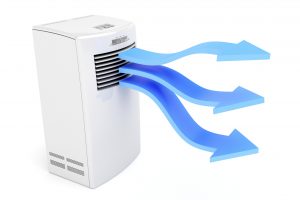 The days continue to heat up, which means you’re probably running your air conditioner for at least a couple hours on a daily basis. Of course, more use means more wear and tear, which means more problems. More chances for problems to develop, at least. One of the first warning signs that an air conditioner is experiencing problems is strange noises coming from the system. Let’s take a look at some noises that should get your attention, and what causes them.
The days continue to heat up, which means you’re probably running your air conditioner for at least a couple hours on a daily basis. Of course, more use means more wear and tear, which means more problems. More chances for problems to develop, at least. One of the first warning signs that an air conditioner is experiencing problems is strange noises coming from the system. Let’s take a look at some noises that should get your attention, and what causes them.  Oftentimes, it’s the most minor thing that can bring disaster to a system. A single line of code, a relatively miniscule exhaust port, the one linchpin that everything rests on in order to function properly. Believe it or not, a similar weak point exists in your furnace. The air filter is there to prevent dust and debris of various kinds from blowing into the system, and causing problems with its operation. It does this job well, capturing various contaminants as they flow in from the ducts. The problem, though, is that the air filter has no way of getting rid of the contaminants that it collects. If the system isn’t cleaned or replaced every few months, it will eventually become clogged. That’s when the serious problems start.
Oftentimes, it’s the most minor thing that can bring disaster to a system. A single line of code, a relatively miniscule exhaust port, the one linchpin that everything rests on in order to function properly. Believe it or not, a similar weak point exists in your furnace. The air filter is there to prevent dust and debris of various kinds from blowing into the system, and causing problems with its operation. It does this job well, capturing various contaminants as they flow in from the ducts. The problem, though, is that the air filter has no way of getting rid of the contaminants that it collects. If the system isn’t cleaned or replaced every few months, it will eventually become clogged. That’s when the serious problems start. 





